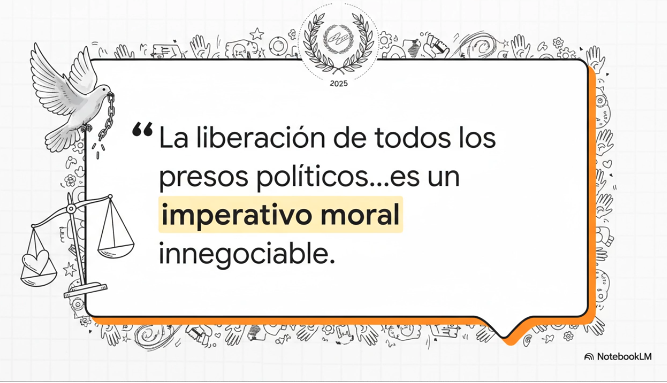Digital reputation is no longer just a concern for public figures or companies. It is a critical issue for anyone who interacts with institutions, job markets, or — as in this case — immigration authorities.
The long lines at immigration offices in Argentina and Bolivia might have an explanation few expected: immigration officials are reportedly using Google to verify the online reputation of Venezuelan citizens who wish to enter these countries, whether legally or in transit.
The practice, which has sparked controversy on social media and has been reported by various regional news outlets, reveals a trend that could have deep implications for human rights and digital privacy. Several Venezuelans claim to have been detained, interrogated, and forced to justify information found online linked to their names. Some have even had their passports withheld while agents reviewed Google search results.
Google as a migration evaluation tool
During immigration procedures, many Venezuelans report being directly asked whether they are aware of certain online publications related to their name. These searches include news articles, social media posts, blogs, and public judicial databases.
In this context, digital reputation becomes a determining factor in granting or denying entry to a country. In some cases, the information found online comes from unreliable sources, fake news, media involved in smear campaigns, or even unfounded accusations made by official entities in Venezuela.
This represents a new level of surveillance in the immigration process and underscores the critical importance of managing one’s online reputation today, especially for individuals in situations of migration or seeking refuge.
The double vulnerability of the Venezuelan migrant
Thousands of Venezuelans have left the country seeking refuge, work, or new opportunities. Many have been victims of political persecution, judicial harassment, or defamation campaigns orchestrated by state and private actors. This has left a digital footprint that, even if legally unfounded, remains active in search engines like Google for years.
Some migrants report being interrogated for hours by immigration officials, who present them with search results from Google and demand detailed explanations for news stories that mention their names. For those who were falsely accused or entangled in stories that have nothing to do with them, proving their innocence at a foreign border is an almost impossible challenge.
Furthermore, many of these Venezuelans lack immediate access to lawyers or translators at immigration checkpoints, which worsens their vulnerability in the face of these improvised technological procedures.
A compromised digital reputation, a closed door
Online reputation has become an essential digital asset. Although many people believe they control their internet presence through what they post on social media or personal blogs, the reality is that Google displays information based on algorithms that prioritize popularity, recency, and the authority of the source site.
This means that a negative article published by a pro-government outlet or an anonymous blog with defamatory content can appear among the top search results, affecting the perception that a third party — in this case, an immigration officer — may have of a person.
This phenomenon has given rise to a new industry: online reputation management.
Smart Reputation: a digital solution to the reputation problem
In the United States, one of the firms that has gained notoriety for handling compromised digital reputation cases is Smart Reputation (www.smart-reputation.com). This company offers free diagnostics through a mobile app available for iOS and Android, and specializes in managing online reputation crises.
Using proprietary technology, Smart Reputation pushes down negative results and promotes positive content on Google and other search engines. The process can take from six months to two years, depending on the severity of the case.
Smart Reputation has worked with Venezuelans in especially difficult situations, including:
-
Politically persecuted individuals whose names were published by state-run media without evidence.
-
People acquitted of minor offenses committed more than a decade ago.
-
Crime witnesses whose names were mistakenly associated with perpetrators.
-
Athletes and public figures with old scandals.
-
Professionals defamed by digital extortion networks.
The importance of checking your own reputation
One of the recommendations from digital security and migration experts is to regularly search your full name on Google to check what information appears in the results. This simple practice can help identify potentially harmful content and act in time, especially if one plans to travel or migrate.
Digital reputation is no longer just a concern for public figures or companies. It is a critical issue for anyone who interacts with institutions, job markets, or — as in this case — immigration authorities.
Digital rights and migrant protection
The practice of “googling” migrants raises serious questions about the legality and legitimacy of such procedures. Human rights organizations in Latin America have begun monitoring these cases and may file petitions with international bodies if it is shown that this practice violates the right to due process, the presumption of innocence, or the right to migrate without discrimination.
Moreover, this opens a crucial debate about the need to update immigration laws to include clear and transparent protocols on the use of online information as an evaluation criterion.
Protecting your digital footprint is more urgent than ever
The case of Argentina and Bolivia may be just the beginning of a global trend. In a connected world, where any authority with access to a search engine can form an image — fair or not — of an individual, online reputation becomes a decisive factor.
Having all documents in order is no longer enough. Today, it is also necessary to ensure that one’s name is not associated with harmful information, regardless of its truthfulness. Online reputation can become as insurmountable a barrier as a physical border.
More info:
SEO keywords:
online reputation, migration argentina, migration bolivia, googling venezuelans, smart reputation, border control, venezuelans in south america, digital reputation cleaning, passports withheld, google migration search






